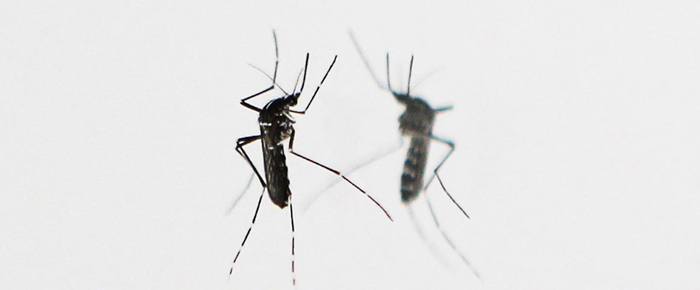
By Doug Morin
Executive Director – CV Volunteers in Medicine, Indio, CA
In addition to their pesky whining, mosquitoes can carry some serious diseases, including West Nile virus and Zika. West Nile has been around for decades and, according to the Coachella Valley Mosquito and Vector Control District, most people who are infected with West Nile virus will not experience any illness. Others may have flu-like symptoms of fever and headaches. Young children, the elderly, or people with lowered immune systems are at greater risk of experiencing severe symptoms. There are no medications to treat or vaccines to prevent West Nile virus infection. Fortunately, most infected people will have no symptoms and 1 in 5 people who are infected will develop a fever with other symptoms. Less than 1% of infected people develop a serious neurological illness.
The newest, and most dangerous, virus is the Zika virus, which is in more than 60 countries and spreading rapidly. Zika is spread to people through mosquito bites, and outbreaks of Zika have occurred in areas of Africa, Southeast Asia, the Pacific Islands, and the Americas. Six people in California have been diagnosed with Zika in the past three years. There are no approved drugs or vaccines for Zika yet because scientists have long assumed the virus was benign, but vaccine development is now under way, and the first safety trial will be in September. Top federal health officials fear Congress will end this session without approving funds to combat Zika just as the summer mosquito season is peaking.
As with West Nile, many people infected with Zika virus don’t feel sick. If a mosquito bites an infected person while the virus is still in that person’s blood, it gets infected and it can spread the virus. Even if they don’t feel sick, travelers returning to the United States from an area with Zika should take steps to prevent mosquito bites for 3 weeks so that they don’t spread Zika to mosquitoes, who can then spread Zika to other people.
Meanwhile, to avoid getting bitten by mosquitoes, eliminate standing water in your yard, wear long-sleeve shirts and pants, especially at dusk, and apply insect repellent to exposed skin. If you get bitten, calamine lotion or a corticosteroid cream can ease the itch. Call your doctor if you develop aches, fever, headache, joint pain, or a rash—even weeks later, since mosquito-borne diseases can take a long time to produce symptoms.
In addition to mosquitoes, our desert summers present heat-related health problems that can be prevented. Heat stroke happens when the body can no longer control its temperature and the body’s temperature rises fast and it can’t sweat or cool itself. Heat exhaustion is a milder illness that happens when the body has lost too much water and salt in sweat. Heat cramps are muscle pains and spasms due to heavy activity, and sunburn is when skin becomes red, painful and unusually warm after being in the sun and can seriously damage the skin. Remember to apply and re-apply sunscreen generously and drink lots of water.










































